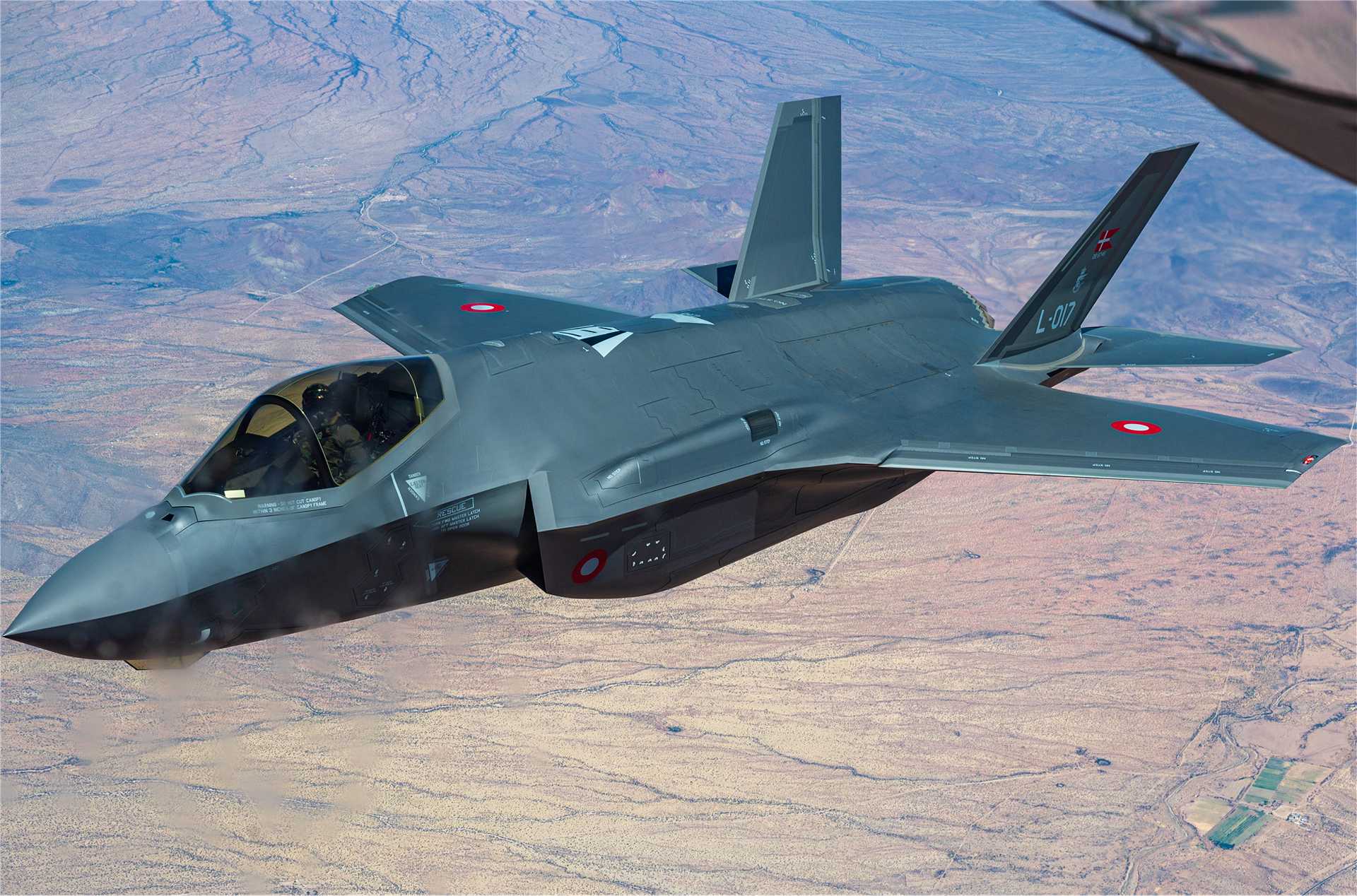Greece Advances F-35 Fighter Jets Integration with $17.2 Million U.S. Support Contract

{loadposition bannertop}
{loadposition sidebarpub}
On May 5, 2025, the United States Department of Defense awarded American Company Lockheed Martin Aeronautics a contract worth $17.2 million to provide engineering and technical support for Greece’s integration into the F-35 Lightning II program. This Foreign Military Sales (FMS) deal represents a critical step forward in the strategic defense partnership between Greece and the United States, as well as a major milestone in the Hellenic Air Force’s modernization trajectory.Follow Army Recognition on Google News at this link
An F-35A Lightning II in flight during a U.S. Air Force training mission symbolizes the next-generation airpower Greece is preparing to integrate into its fleet, following a $17.2 million U.S. support contract aimed at advancing the Hellenic Air Force’s adoption of the fifth-generation stealth fighter. (Picture source: U.S. DoD)
The U.S. F-35 for Greece contract, structured as a cost-plus-fixed-fee, firm-fixed-price agreement, includes program management, non-recurring unique requirements, engineering assistance, and training services tailored to Greece’s needs. The work will be performed across multiple key U.S. and allied locations, including Fort Worth, Texas (60%); Orlando, Florida (18%); Greenville, South Carolina (11%); El Segundo, California (5%); Lancashire in the United Kingdom (4%); and Baltimore, Maryland (2%). The expected completion date is May 2028, with the full contract amount obligated at the time of the award. This support initiative is part of broader FMS cooperation and was issued through Naval Air Systems Command, Patuxent River, Maryland.
This support contract builds on Greece’s prior agreement signed in July 2024, in which the country committed to purchasing 20 F-35A Lightning II aircraft via a Letter of Offer and Acceptance (LOA) with the U.S. government. The initial acquisition is valued at approximately €3.47 billion, and includes an option for 20 more fighters. However, as of May 2025, Greece has not yet received any F-35 aircraft. According to official timelines, deliveries will begin in 2028, with the first four jets remaining in the United States until 2030 to support pilot and technician training. The remaining 16 aircraft will be delivered progressively through 2033.
In preparation for these arrivals, Greece is upgrading military infrastructure, notably at the 117th Combat Wing in Andravida, which is designated to host the F-35 fleet. These upgrades include enhanced perimeter security, lighting systems, and a modern Instrument Landing System (ILS). Furthermore, Lockheed Martin has announced that the first eight F-35s destined for Greece will be produced in the United States, while later units might be assembled at the FACO (Final Assembly and Check Out) facility in Cameri, Italy.
The timeline aligns with Greece’s choice to acquire the Block 4 variant of the F-35, featuring major enhancements in weapons systems, targeting precision, and electronic warfare capabilities—upgrades expected to be fully operational by 2029. This version ensures that Greece’s air fleet will have cutting-edge performance well into the next decade.
The F-35 acquisition is a centerpiece of Greece’s comprehensive defense modernization plan, which outlines over €25 billion in military investments through 2036. Alongside the fighter jet program, this includes procurement of submarines, drones, space-based assets, and modernization of command-and-control networks. The goal is to develop a future-ready, high-tech military capable of defending national interests and contributing robustly to NATO missions.
The growing defense relationship between the United States and Greece—anchored in agreements such as the U.S.-Greece Mutual Defense Cooperation Agreement (MDCA)—is underpinned by shared security objectives and strong bilateral cooperation. The two countries engage in regular joint exercises and strategic dialogues, with Greece offering vital geostrategic assets such as the Souda Bay base in Crete for U.S. and allied operations.
Through the F-35 fighter jet program, Greece is not only enhancing its own defense posture but also reinforcing NATO’s southeastern flank with advanced airpower. The addition of the stealthy, networked, multi-role F-35s will significantly increase Greece’s deterrence capability, regional influence, and interoperability with allied forces.
This newly awarded contract, while technical in nature, marks a powerful symbol of long-term collaboration and strategic trust between Washington and Athens. As Greece prepares to welcome its first F-35s in 2028, the country is positioning itself as a leading force in the evolving security landscape of the Eastern Mediterranean.

{loadposition bannertop}
{loadposition sidebarpub}
On May 5, 2025, the United States Department of Defense awarded American Company Lockheed Martin Aeronautics a contract worth $17.2 million to provide engineering and technical support for Greece’s integration into the F-35 Lightning II program. This Foreign Military Sales (FMS) deal represents a critical step forward in the strategic defense partnership between Greece and the United States, as well as a major milestone in the Hellenic Air Force’s modernization trajectory.
Follow Army Recognition on Google News at this link
An F-35A Lightning II in flight during a U.S. Air Force training mission symbolizes the next-generation airpower Greece is preparing to integrate into its fleet, following a $17.2 million U.S. support contract aimed at advancing the Hellenic Air Force’s adoption of the fifth-generation stealth fighter. (Picture source: U.S. DoD)
The U.S. F-35 for Greece contract, structured as a cost-plus-fixed-fee, firm-fixed-price agreement, includes program management, non-recurring unique requirements, engineering assistance, and training services tailored to Greece’s needs. The work will be performed across multiple key U.S. and allied locations, including Fort Worth, Texas (60%); Orlando, Florida (18%); Greenville, South Carolina (11%); El Segundo, California (5%); Lancashire in the United Kingdom (4%); and Baltimore, Maryland (2%). The expected completion date is May 2028, with the full contract amount obligated at the time of the award. This support initiative is part of broader FMS cooperation and was issued through Naval Air Systems Command, Patuxent River, Maryland.
This support contract builds on Greece’s prior agreement signed in July 2024, in which the country committed to purchasing 20 F-35A Lightning II aircraft via a Letter of Offer and Acceptance (LOA) with the U.S. government. The initial acquisition is valued at approximately €3.47 billion, and includes an option for 20 more fighters. However, as of May 2025, Greece has not yet received any F-35 aircraft. According to official timelines, deliveries will begin in 2028, with the first four jets remaining in the United States until 2030 to support pilot and technician training. The remaining 16 aircraft will be delivered progressively through 2033.
In preparation for these arrivals, Greece is upgrading military infrastructure, notably at the 117th Combat Wing in Andravida, which is designated to host the F-35 fleet. These upgrades include enhanced perimeter security, lighting systems, and a modern Instrument Landing System (ILS). Furthermore, Lockheed Martin has announced that the first eight F-35s destined for Greece will be produced in the United States, while later units might be assembled at the FACO (Final Assembly and Check Out) facility in Cameri, Italy.
The timeline aligns with Greece’s choice to acquire the Block 4 variant of the F-35, featuring major enhancements in weapons systems, targeting precision, and electronic warfare capabilities—upgrades expected to be fully operational by 2029. This version ensures that Greece’s air fleet will have cutting-edge performance well into the next decade.
The F-35 acquisition is a centerpiece of Greece’s comprehensive defense modernization plan, which outlines over €25 billion in military investments through 2036. Alongside the fighter jet program, this includes procurement of submarines, drones, space-based assets, and modernization of command-and-control networks. The goal is to develop a future-ready, high-tech military capable of defending national interests and contributing robustly to NATO missions.
The growing defense relationship between the United States and Greece—anchored in agreements such as the U.S.-Greece Mutual Defense Cooperation Agreement (MDCA)—is underpinned by shared security objectives and strong bilateral cooperation. The two countries engage in regular joint exercises and strategic dialogues, with Greece offering vital geostrategic assets such as the Souda Bay base in Crete for U.S. and allied operations.
Through the F-35 fighter jet program, Greece is not only enhancing its own defense posture but also reinforcing NATO’s southeastern flank with advanced airpower. The addition of the stealthy, networked, multi-role F-35s will significantly increase Greece’s deterrence capability, regional influence, and interoperability with allied forces.
This newly awarded contract, while technical in nature, marks a powerful symbol of long-term collaboration and strategic trust between Washington and Athens. As Greece prepares to welcome its first F-35s in 2028, the country is positioning itself as a leading force in the evolving security landscape of the Eastern Mediterranean.





